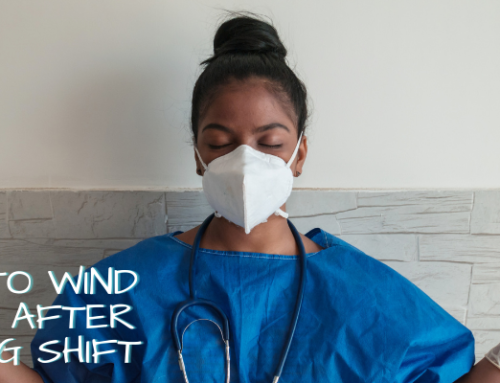Facebook has become a household name and shares its fame with its creator Mark Zuckerberg, whose brilliant idea has provided us all with a means of staying in touch. Since its inception in 2004, Facebook has mushroomed into the world’s largest social network with over 901 million active monthly users and 526 million daily active users (Waterson, 2012), with an average age of 26 (2009). The idea of combining Facebook and nursing is creating a phenomenal growth — not just a trend but more of a cultural shift.
Nurses Are Computer Savvy
A Pew Internet study (2012) characterizes those born between 1981 – 2000 as the Millennials. This generation is constantly connected through social media and with searching the web. They thirst for instant gratification and quick fixes that can lead to poor life decisions if they lack in common sense and sound judgment when it comes to sharing patient information on Facebook.
Encouragingly, 55 percent of the 1,021 internet experts from think tanks, research groups, corporations and universities concluded the Millennials “are learning more and they are adept at finding answers to deep questions, in part because they can search effectively and access collective intelligence via the internet…and cognition among the young generally produce positive outcomes.” Smart phones have accelerated our hyper connectedness (Pew, 2012) as currently 46 percent of American adults are smart phone users and by 2020 mobile devices will be the primary Internet connection tool. The misuse of this convenient hand held device equipped with camera, microphone and video recorder in the work environment has already led to cases involving state board disciplinary action.
The current trend has been a 21 percent increase in state board discipline over the past five years and cases published by the media involve patient rights issues which are protected by HIPPA (Health Information and Portability Patient Act) and can lead to a major criminal investigation as happened with two nurses were investigated by the FBI (Federal Bureau of Investigation) after posting an x-ray image of a foreign object which was lodged in a patient’s body part (Milwaukee News, 2009).
The following two case examples highlight the notion of dual responsibility for nurses using social media: nurses share professional responsibility in conjunction with employers who must provide Internet policies for nurses and to adhere to due process of the law when nurses are accused of unlawful or inappropriate postings.
The two cases involving Facebook posts, where no patient identification was included, were given Union support and a United States Judge ruled in favor of nursing students expelled from a Junior College for posting a picture of a placenta. Lessons learned and expressed publicly by Max Carbuccia, Labor Representative, CA., Nurses Association who viewed the content and the nurses intention for posting not unlawful, stating, “Nurses discussed how to handle different types of patients hypothetically and only in an educational context,” which was contrary to Larry Anderson, CEO’s appraisal:
“Nurses used social media to post their personal discussions concerning hospital patients.”
Tri City Medical Center has since publicly announced measures to prevent further occurrences admitting that: “Public hospital employees are entitled to a hearing before termination…and the hospital is to re-emphasize its policy regarding patient privacy through training.”(Beaulieu, 2010).
United States Judge, Eric Melgren, upheld four nursing students right to due process of the law after the nursing students were illegally expelled from the Associates in Nursing Program at Johnson County Community College (JCCC), Kansas, who were subsequently reinstated after testifying that their clinical instructor responded: “Oh you girls!” when they said they were going to post the placenta on Facebook (KCCNews, 2011). JCCC Board Member, Benjamin Hodge admonished the college administration for wasting resources on court costs and for continuing to draw high salaries despite their error. (KCCNews, 2011).
The Joint Commission has responded to the gap between nurses’ comprehension of the HIPPA core information and testing and its application in the work place by issuing health care organizations mandates to address these disruptive behaviors through establishing a social networking code of conduct. Bennett (2009) reminds nurses “although it may be outside the workplace that a nurse may be disciplined over a post that is inappropriate.”
Larson (2011) outlined six principles to guide nurses in using social media:
- Nurses must not transmit or place online individually identifiable patient information.
- Nurses must observe ethically prescribed professional patient-nurse boundaries.
- Nurses should understand that patients, colleagues, institutions and employers may view postings.
- Nurses should take advantage of privacy settings and seek to separate personal and professional information online.
- Nurses should bring content that could harm a patient’s privacy, rights or welfare to the attention of appropriate authorities.
- Nurses should participate in developing institutional policies governing online contact.)
On a positive note regarding Facebook and nursing, Smith (2010) is optimistic about nurses being active in the social media: “Nurses are change agents and as change agents we can embrace the social media tools of engagement with patients and the broader health care and nursing community to foster healthcare dialogue and to shape a healthier global community together.”





